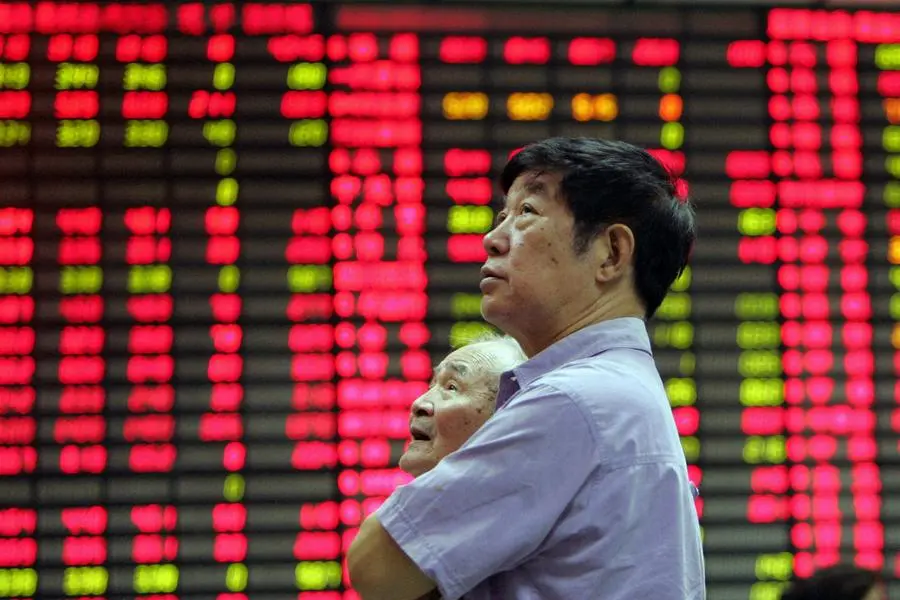PHOTO
SHENZHEN, China - Chinese smartphone maker Honor is receiving an unusually high level of support from local government backers, as the former Huawei unit prepares an initial public offering (IPO), according to policy documents and a person close to the matter.
Honor is receiving research-and-development funding, tax breaks and support to expand overseas, three Shenzhen government documents showed. It is also benefiting from a dedicated team at its local city hall with a "no matter left overnight" policy.
The extra hand is likely to improve Honor's investor appeal as it readies for a financial market debut which, if successful, could give Shenzhen city a way to exit its investment.
Honor was thought to be worth about 100 billion yuan ($13.8 billion) when a consortium under Shenzhen-owned entities bought it from Huawei in 2020, Reuters reported at the time. The handset maker has declined to disclose any IPO details such as how much it reckons it is worth now.
It is looking to list on China's A-share market where it expects a higher valuation, said two of the people. It could list this year or early next, one of them said. The people declined to be identified as no plans have been finalised.
Honor said it has not received any Shenzhen government support beyond that ordinarily provided to firms since Jan. 1, 2021. It also said it would begin shareholding reform in the fourth quarter and initiate the IPO process at a suitable time.
Shenzhen's commerce department, tax bureau and the Futian district government did not respond to requests for comment.
Honor replaced Apple as the third-biggest handset vendor in China in April-June while a drop in sales left the U.S. smartphone pioneer in sixth place, Canalys data showed.
The Chinese manufacturer aims to ship 100 million handsets annually by 2026, a 75% jump from 2023, and to become a top three global vendor by 2028, one of the policy documents showed.
Those targets appear ambitious given soft demand in the world's largest smartphone market and competition from a dizzying number of local handset makers including one-time parent Huawei, said analysts including Toby Zhang at Canalys.
BEYOND THE ORDINARY
The official support illustrates the growing importance of Honor to Shenzhen's economy at a time when a slowdown in the property sector - a key source of tax revenue - has dragged on the finances of local governments nationwide.
The smartphone maker is among Shenzhen's top-six enterprises with industrial output worth over 200 billion yuan ($27.6 billion), the local government documents showed without specifying a time frame.
Shenzhen city pledged to provide special policy support in meetings between its leadership and local government departments in October and March, the documents showed.
"Supporting Honor's development is of great significance to our city for stabilising industrial growth, exports and for gathering the complete ecosystem of the smart device industrial chain," authorities wrote following a March meeting.
Shenzhen often supports major local firms, however its support for Honor goes beyond the ordinary, said a person with knowledge of city policy, declining to be identified due to the sensitivity of the matter.
The city will provide Honor with retroactive funding for research projects - a relatively recent innovation which better allows market mechanisms to decide research priorities - the person said, citing government documents.
The local commerce department has also been called upon to establish a special trade project for Honor to help expand in smaller cities and overseas, the documents showed.
One of the documents showed Honor receiving support with tax and customs assessments, helping it save 600 million yuan in annual raw material costs and foreign exchange payments, leading to increased profit by around 300 million yuan.
Authorities in the central Futian district, where Honor is headquartered, have established an Honor work team. The body has provided certification support, 500 housing unit and 150 million yuan of financial support, one of the documents showed. ($1 = 7.2484 Chinese yuan renminbi)
(Reporting by David Kirton; Additional reporting by Julie Zhu in Hong Kong; Editing by Miyoung Kim and Christopher Cushing)




















